The BEST Guide to HVAC Tools In 2024
- Field Service Management
- 9 Min Read
Starting as an HVAC service technician will require a particular skill set as well as the proper tools to be successful. Being equipped with the necessary, reliable, and durable and the best HVAC tools for technicians is essential for faster, safer, and higher quality service.
You will need a distinctive toolkit for your daily tasks, installations, service calls, marketing, invoicing, or quoting. Technicians should not need to take any unnecessary tools anywhere since they must carry their loaded bags around for all their jobs.
So how do you know what the best HVAC tools are?
The tools you choose will depend on the type of work, so you need to know the process. Please find the most common jobs and their details and select tools that best complement your techniques.
Size and weight also are essential factors to consider; try to ensure that the equipment you buy is easy to carry around and won’t cause you strain over time.
Lastly, the HVAC tools list also includes other essentials like safety gear, multi-use tools, ladders, and more, which help keep you safe from HVAC hazards.. Make certain that you carry not only HVAC power tools but also HVAC service tools and safety tools.
In this guide, you will cover:
- HVAC Safety tools
- Essential HVAC tools
- Advanced HVAC tools
- HVAC Business tools
This HVAC technician tools list will help you equip yourself with the best HVAC tools in 2024!
Here What We Cover
HVAC Safety Tools And Accessories Every Tech Needs To Carry
Every technician’s tool bag will be different from their fellows, but some tools fall under the standard category.
These are the must-have HVAC tools:
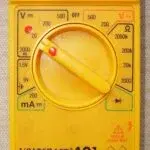
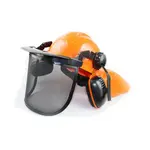

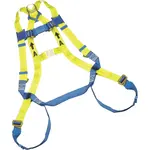




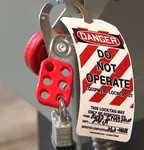
- Gloves
Durable and flexible for better protection.
- Earplugs
To lessen the exposure to loud noises while working with HVAC power tools.
- Safety goggles
They protect you from dust, particles, and debris while at your job and thus also give you an enhanced vision.
- Footwear
It is always prudent to own a pair of heavy steel-toe work boots with a proper grip. These will protect your feet from a potential accident and help you navigate the workplace.
- Masks
For COVID safety protocols as well as PPE.
- Multimeter
This essential tool allows you to measure voltage, resistance, and current, a crucial HVAC technician safety tool. It keeps you from getting electrocuted.
- Inspection mirror
These mirrors make it easy to read numbers or inspect welding joints on the back of a pipe that is difficult to make out.
- Utility knife
Utility knives will come in handy frequently on a day-to-day basis for cutting insulation and opening boxes.
- Lockout/Tagout Devices
Lockout devices are safety tools used to prevent accidental startup or energization of machinery and equipment during maintenance or repair.
HVAC technicians use tagout devices to isolate HVAC systems from power sources before working on them, ensuring their safety.
- Personal Protective Equipment (PPE)
PPE refers to protective clothing, helmets, goggles, gloves, and other garments or equipment designed to protect HVAC technicians from workplace hazards. HVAC technicians need to wear appropriate PPE to prevent injuries and ensure their safety while working.
- Safety Harness/Fall Protection
Safety harness equipment is essential for HVAC technicians working at heights or in elevated areas. They help prevent falls and minimize the risk of serious injuries by securing technicians to anchor points or structures while working above ground level.

Use our free estimate template now
Make winning quotes in minutes—for any industry and any job.
Essential HVAC Tools A Tech Should Never Leave Home Without!
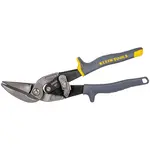
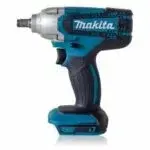
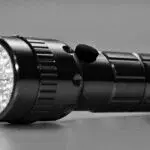
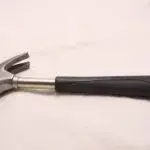
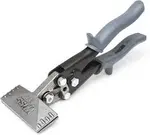
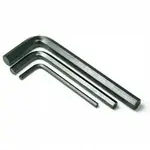
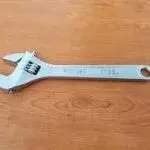
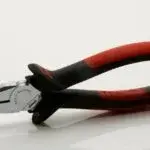

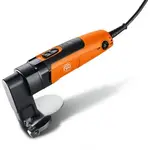
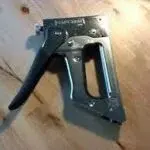
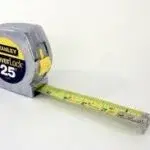
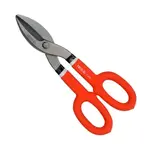
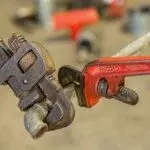
These HVAC tools are most commonly used and are also known as HVAC hand tools.
- Hammers
Lightweight, easy-grip, and fiberglass construction are a few features that an HVAC technician tool should have. It increases its durability and convenience.
- Screwdrivers
Units, vents, thermostats, and most of the things you deal with as an HVAC technician need screwdrivers. So you must keep a screwdriver set with a wide range of sizes.
Insulated handles to protect you from shock so you could invest in those as well.
- Pliers
Drilling holes and remote connections are just a couple of activities in HVAC services that require pliers like wire strippers, linesmen, channel-lock, open-face, and needle-nose.
An insulated plier set would also increase its longevity.
- Tape measure
The ability to read and procure accurate measurements is crucial for technicians, especially HVAC ones, with all the air conditioners, walls, vents, and furnaces to measure.
That is why a tape measure is a toolkit essential.
- Adjustable wrenches
These adjustable wrenches are essential for your daily work since they give you much flexibility. Acquiring the small, medium, and large sizes will only make your toolkit all the more invincible.
- Flashlight
Now, this is a no-brainer! We don’t even leave our house usually without a built-in torch or a flashlight application on our phones! So a technician should most definitely have one in their tool bag.
A headlamp might be a good option for work that requires both hands.
- Battery-powered drills
HVAC technicians should equip themselves with cordless drills and two batteries for time efficiency.
- Pipe wrench
These are handy on threaded pipes, usually galvanized steel, black iron, or similar metal pipes. They are also used to secure connections for natural gas and plumbing. A pro tip would be to use aluminum handle wrenches that weigh a lot less.
- Cutters
Technicians will need these to cut copper and PVC pipes and tubes.
- Staple gun
These help secure joists and foil lines to increase the necessary airflow.
- Crimpers and awls
Crimpers and awls help us work the piping and metal to fit everything in the space carved out for the HVAC system.
- Extension cords
These are very useful for plugging in electronics, lights, and appliances.
- Shears
Shears are cutting tools used in HVAC for cutting thin metal sheets, such as ductwork or flashing. They provide precise cuts and are available in various sizes for different applications.
- Aviation Snips
Aviation snips are specialized cutting tools designed for cutting sheet metal. They are commonly used by HVAC technicians to make straight or curved cuts in metal ductwork and other materials.
- Tin Snips
Tin snips are hand tools used for cutting and shaping thin metal sheets, such as aluminum or galvanized steel. HVAC technicians use tin snips for tasks like cutting ductwork, flashing, and other sheet metal components.
- Hand Seamer
A hand seamer is a tool used for bending and forming sheet metal. HVAC technicians use hand seamers to create bends and folds in metal sheets, particularly in ductwork fabrication and installation.
- Hex Keys (Allen Wrenches)
Hex keys, also known as Allen wrenches, are tools used to drive bolts and screws with hexagonal sockets. HVAC technicians use hex keys for assembling and disassembling equipment and components, such as tightening or loosening fasteners on HVAC systems.
Get posts like this in your inbox.
Keep learning how to run a 5-star business with our bi-weekly newsletter.
Advanced HVAC Tools A Tech Needs To Get The Job Done


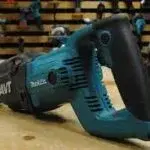
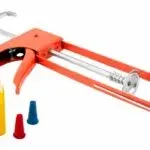
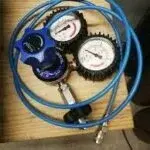
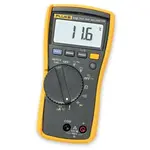
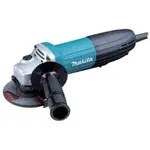
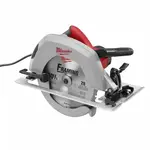
Moving on to the tools that are more technical, advanced, and expensive, they also are important. HVAC companies usually provide such equipment to ensure their proper working conditions.
- Thermometer
Technicians use thermometers to measure the temperature of the liquid line, suction line, discharge air temperature, and other points of interest in refrigerating systems.
- Reciprocating saw
What makes these saws valuable is that they cut through just about anything. It would be best to choose models with a high build quality that allows you to use them daily.
- Manifold gauge
It is a gauge that can work as a diagnostic or a service tool. It checks the pressure and tells technicians if the system faces issues for addressing.
- Caulking gun
This gun seals and fills ducts and holes. One should also remember to purchase the dripless caulking gun!
- Coil fin straightener
As the name suggests, this tool straightens and cleans coils. It helps in attaining better airflow and heat exchange.
- Core removal
These enable technicians to remove and reinstall the service valve without losing refrigerant or vacuum. They also allow you to connect various service tools, including digital vacuum gauges, instream thermometers, or service valve re-threading tools.
- Voltage Meter
A voltage meter, also known as a multimeter, is an essential tool for HVAC technicians to measure electrical parameters like voltage, current, and resistance. They use voltage meters to troubleshoot electrical issues, test components, and ensure the safe operation of HVAC systems.
- Angle Grinder
An angle grinder is a handheld power tool equipped with a rotating abrasive disc used for cutting, grinding, and polishing various materials. HVAC technicians may use angle grinders for tasks like cutting metal, grinding welds, or preparing surfaces for welding.
- Circular Power Saws
Circular power saws are versatile cutting tools equipped with a toothed blade that rotates in a circular motion. HVAC technicians use circular saws for cutting lumber, plywood, and other construction materials during HVAC system installation and repair.
- Nitrogen regulator
They control and regulate the flow and amount of high-pressure gasses released at once in a cylinder.
- Leak detectors
Electronic leak detectors detect indications of refrigerants in the exterior of HVAC systems.
- Psychrometers
A psychrometer measures the relative humidity in the atmosphere through two thermometers. They also measure the airflow and the air mixture.
- Thermal imaging tools
One of the valuable tools used during HVAC inspections, these tools help diagnose and monitor potential problems with the HVAC equipment; they locate air leaks in the building envelope, water leaks, electrical issues, and more.
- Refrigerant scale
It helps to address accuracy issues by measuring the weight of the refrigerant while it is added to or removed from the unit’s compressor.
- Vacuum Pumps
A vacuum pump removes gas, vapors, and other contaminants from refrigeration systems after refrigerant recovery and repair of cooling systems.
HVAC Tools A Tech Needs To Manage The Business
While the right skills and tools do take you closer to being successful in your service, managing your HVAC business optimally is also a crucial aspect of this industry. We provide you with a list of business tools you can utilize to learn more about business management.
- HVAC Field Service Management Software
Since everything is digital, using software to manage and grow your HVAC business is essential to keep up with the competition. Check it out here!
- Accounting software
Good accounting software will help you handle salaries, and balance your books, which will in turn increase your business growth.
- Payment software
Electronic payment methods make it easy for you to conduct transactions with your customers or suppliers. Thus improving work efficiency.

Explore a better way to grow your business. Book a free demo now!
Get organized, win jobs, and wow customers.
Book A Free Demo with ZenTrades Today!
Related Reading
Why Your Field Software Management Software Needs QuickBooks Integration
ZenTrades Why Your Field Service Management Software Needs QuickBooks Integration Read More Request Demo...
Read MoreZenTrades How To Manage Electrical Service Agreements Like...
Read MoreZenTrades The Best 5 Jobber Alternatives In 2023...
Read More

